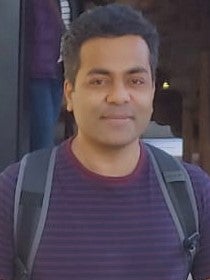
The Persianate Studies Workshop is pleased to welcome Dr. Prashant Keshavmurthy, who will be workshopping a paper titled “The Brahman: Xenology in Amīr Khusrow’s Alexandrine Mirror” on Monday, November 4, 5:00- 7:00 PM in 1022 South Thayer Building, 202 S. Thayer St., Ann Arbor.
Keshavmurthy’s paper is part of a section of two or three chapters of a book he is writing on kinds of alterity in pre-modern Persian literature. The book explicates the logics of five key modes of alterity through encounters with which Persianate selfhood defined itself over the first millennium of Persian literature. Attending to these figures of foreignness lets us infer claims for the self through what the self expels, fears, desires, deems ugly or appropriates. Conceived in five interlocking sections on the foreigner, strange sexual practices, the anthropology of barbarism, linguistic barbarism and diasporic identity, this book explores literary articulations of Persianate selfhood in multiple genres by putting into question modern studies that characterize pre-modern Persian literature in terms of confident humanist self-knowledge.
Keshavmurthy is Associate Professor of Persian Studies in McGill University’s Institute of Islamic Studies. He is the author of Persian Authorship and Canonicity in Late Mughal Delhi: Building an Ark (Routledge, 2016), a monograph on the relations between poetics, mysticism and politics in the works of the Persian poet ‘Abd al-Qādir Bidel (d.1720) and his circle. He teaches courses on Persian literature, pre-modern Persianate literary theory, and selfhood and autobiography in Islamic societies. He is currently making a verse translation into English of Amir Khusrow’s (d.1325), Persian romance, Eight Paradises, a translation into English prose of Daryoush Ashouri’s widely acclaimed Nietzschean interpretation of Hāfiẓ, ‘Irfān va rindi dar shi‘r-i Hāfiẓ (Tehran: Nashr-i markaz, 2011) as well as working on a study of figures of foreignness in a millennium of pre-modern Persian literature.
Those interested in attending can email Shahla Farghadani (sfarghad@umich.edu) to get a copy of the chapter in advance. Light refreshments will be served!

